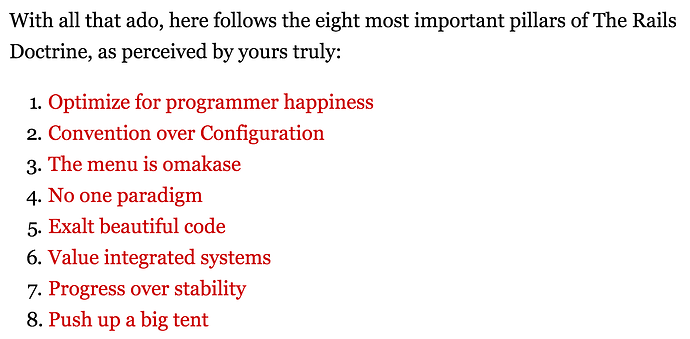I think you misunderstood the part you quoted. Let’s say you liked the direction it was moving in right now, but then next year it went in a completely opposite direction. That security you had in the piece of software you chose for your project (or your business, in my case) is gone, as well as potential investment in the software during that time, as the software does not fulfill the same purpose anymore.
I was one of those people that was happy with the direction it was moving in, up until 1.3 hit, and the tutorial/guide got completely changed around (ruining plans for new employees to study it prior to my teaching - the new tutorial doesn’t match structure or coding conventions), and it was announced that the backwards compatibility is likely only temporary.
BTW, a number of people who express the same opinions as me are regulars on this forum, not just random users who are vocal about being upset. They were here before, not complaining, but rather participating and helping the community. I think their opinion means a little bit more due to that reason.
I would not go as far to say the minority or majority was happy or not right now. It’s not fair to judge. Many people haven’t even upgraded their project yet - if they did you would see a lot more confusion and questions on the forum than you do right now. And the backwards compatibility is still there right now. Their projects still work.
I actually believe most users aren’t even aware of this issue. The only reason I’m aware is because I noticed such a difference in the documentation (as I was prepping for new employees) and found out by word of mouth here on the forum that the reason projects are still working is backwards compatibility. I also found out backwards compatibility might be dropped through this forum here.
If you aren’t monitoring these forums, you aren’t likely to even be aware of these changes…
Your average person wouldn’t complain until things just stopped working.
Don’t you think there might be a HUGE amount of complaints if 1.4 drops and takes away the backwards compatibility, and then users have to go through hundreds-thousands of files adding more code just to get things working, or be able to access any of the new features in 1.4? Or to potentially apply any fixes for security vulnerabilities that may appear?
Seriously… How different is this from the whole React situation last year? People went nuts because they didn’t want to have to rewrite a large portion of their project based around forced changes. That is a very similar situation that we are in right now. Only difference is things are still working for now and they have made no official announcements, so most people aren’t aware yet. But do you think it’s going to be well-received if people have to write over that much of their project if backwards compatibility is dropped?

